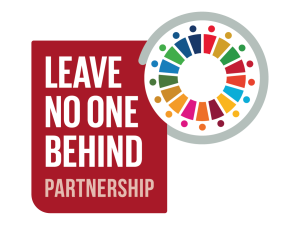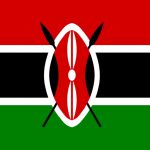15 October 2020
In the coming months, six countries will work together to enhance/strengthen comprehensive, inclusive, and participatory monitoring of the Sustainable Development Goals (SDGs) while leaving no one behind. The initiative aims to promote the use of non-official data in SDG monitoring. It is the result of a collaboration between the network Partners for Review (implemented by the German development agency Deutsche Gesellschaft für Internationale Zusammenarbeit GmbH, or GIZ), the Danish Institute for Human Rights and the International Civil Society Centre
The participating countries are Canada, Costa Rica, Ghana, Nepal, Philippines and the Palestinian Territories. State and non-state actors from each of these countries will participate in a series of virtual workshops to discuss sustained data collaboration in these countries. This initiative will build on existing attempts to create multi-actor data ecosystems for the SDGs, and will draw from the expertise of national, multilateral, and international partners, including the UN Statistics Division and the World Bank.
With ten years left to achieve the SDGs, there are encouraging developments towards recognizing additional data sources to complement official statistics for SDG monitoring, including data produced by civil society organizations and human rights institutions. In countries such as Bangladesh, India, Kenya, and Nepal, for example, civil society is working through the Leave No One Behind Partnership to collect and use community-generated data to fill knowledge gaps in local-level SDG monitoring and to better understand local drivers of vulnerability and marginalization.
National human rights institutions (NHRI), moreover, have been instrumental in providing data based on their monitoring mandate, and collaborating with national statistical offices (NSOs) to promote a human rights-based approach to data collection, disaggregation, dissemination, and analysis. For example, in Denmark, the NHRI contributed to the development of national SDG indicators and provided data on the situation of persons with disabilities. In Kenya, the NHRI supports the collection of data on persons with albinism and intersex persons, in addition to helping to develop methodologies for data collection on some of the indicators for SDG 16 (peace, justice, and strong institutions).
These examples illustrate the benefits of harnessing the capacities and expertise of a wide range of national actors to fulfill the ambition of the 2030 Agenda of producing qualitative data to ensure that no one is left behind. It is in this spirit that NSOs, NHRIs, SDG coordination units and civil society from six countries will come together in a virtual room to build multi-stakeholder data partnerships for the SDGs.
The initiative is kicked-off with the first workshop on 28 October. Over a few months, the group will tackle persistent challenges related to creating data partnerships, such as building trust among the stakeholders, identifying data gaps, and mapping relevant data producers to fill those gaps. Participants will explore how to jointly elaborate methodologies and standards, reflecting the different stakeholders’ roles and capabilities.
This initiative seeks to create a safe platform for participants to discuss and consolidate mutual learnings with their peers in-country and among countries, while exploring concrete steps towards a strengthened SDG data ecosystem in their own national context. Ultimately, the process aims to provide participating countries with the necessary toolset to initiate a pilot multi-stakeholder collaboration in their country.
The workshops will connect with national processes to foster the participation of additional stakeholders. The results will be shared within the Partners for Review network and other relevant international fora, so that more countries can benefit from the outcomes.
This article will be cross-posted at the global SDG Knowledge Hub of IISD as part of a series of publications from the Leave No One Behind partnership.









